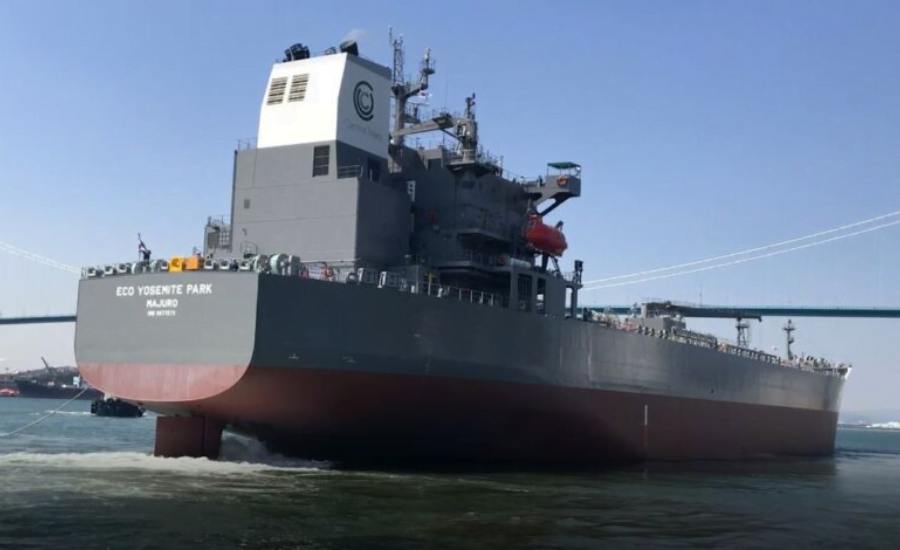What Are The Different Careers In The Merchant Navy?

The Merchant Navy is a global industry that offers some of the best career opportunities on a variety of ship types (even on land). As in other fields, there are jobs in the merchant navy Pakistan that require not only specialized knowledge and training but also a high degree of mental and physical fitness.
If you want to know what a career in the Merchant Navy is like, read on: A job in the Merchant Navy involves working on a variety of ships, primarily as an officer, engineer, or seaman. These are her three main departments for almost all types of ships, which work together in unison to ensure the smooth running of the ship and its operation.
If you are looking forward to a career in the Merchant Navy, you should choose one of three branches:
1. Deck Branch
2. Engine Branch
3. Crew Rating
Courses
Any of the following courses in the above departments will be your ‘starting point’ for a successful career at sea. To join the engine department, you must take a course in marine engineering. This is a four year course or a diploma course (depending on what is offered in your country). If you are a mechanical engineer, you can become a marine engineer by completing the required courses and training (graduate mechanical engineering or GME courses). After studying Mechanical Engineering for a year or gaining an equivalent qualification, you can also join a Marine Engineering course. (This option varies depending on the country you belong to.) After completing your studies in marine engineering, you will be sent on board a ship as a
- Trainee/5th engineer
- then = 4th engineer -> 3rd engineer – and rank
- The system will go up. > Second Engineer – > Chief Engineer
To gain admission to the Stallion Division, you must undertake a BSc course. Basically, it is a 3/4 year course. Taking a marine science course will pave the way for you to become a deckhand on a ship.
Upon completion of the Maritime Science course, you will be able to join a ship as a trainee/deck officer cadet and progress through the ranks as follows = Third Mate/Officer -> Second Mate/Officer -> First Mate /Navigator ->> Captain. If you have electrical or electronic skills, you can also join a ship as an ETO (Electrical Engineering Officer). You must complete preliminary training at sea and then mandatory training on board. In addition to deck officers and ship engineers, ships also require support staff to assist the officers and perform a variety of other important duties.
Such job openings fall under grading
There are various employment options to join a ship as a Captain. Engine Department Fitter Motorman Windshield Wiper Deck Department Deck Seaman (AB) Boatswain Ordinary Seaman (OS) ) Fitter 44 44 Limousine Department as You can also participate in Steward Chef The number of positions/ranks available on a ship depends on the ship type, ship size, and company policy.
What Are The Requirements To Join The Merchant Navy?
Not everyone can join the Merchant Navy. You must have the minimum qualifications required for the specific job on board. You must also be physically fit and meet the basic medical requirements to join the Merchant Navy Pakistan. However, please note that requirements may vary by country. For example, to become a deck or engineering officer in India, you need Physics, Chemistry, and Mathematics (PCM) as your core subjects. English must also be taken as a separate subject.
Some Important Points:
- The merchant navy is a physically and mentally demanding job.
- Be prepared for this.
- Try to find out as much as you can about sea life.
- Just ask someone who has been sailing and has plenty of experience.
- Don’t sign up just for the money.
- Without a doubt, the Merchant Navy is known for offering some of the best pay, but that’s due to the nature of the job.
- Don’t fall into the money trap.
- This is not a desk job, so you may need to “get dirty” from time to time.
- If you think you can’t do this in the long run, reconsider your decision.
- Prepare to fight from the beginning. There are a limited number of positions available to new maritime graduates. Take advantage of all the opportunities that come your way at the beginning and prepare to complete your training period.
What Courses Are Available To Join The Merchant Navy?
You can also pursue a Bachelor of Technology/Bachelor of Engineering degree. Get a degree in marine science and become a deckhand. You can become a deckhand with a DNS (Diploma in Marine Science) or Bachelor’s degree in Marine Science from a university recognized by DG Shipping (please refer to your country’s official website for the necessary. Join as a GP Rating or Saloon Rating. You can join as a Rating by attending a Pre-Sea GP Rating course after the 10th or 12th (India). This is a one-year course, followed by compulsory training on board.
How Much Do You Get Paid In The Merchant Navy?
There is no one-size-fits-all answer, as the annual salary of a seafarer depends on several factors such as nationality, company, type of ship, rank, qualifications, and experience. Merchant Navy is known for offering competitive salaries for professionals, but there are significant differences from country to country and company to company. However, to get a general idea of how much a seafarer earns on average, let’s take a look at the average salary of an Indian seafarer across different sectors and ranks.
Below Is A Very General Range Of Salaries In USD ($):
- Junior engineer or deck cadet – 350- 1000 USD
- 4th Engineer / 3rd officer – 2400 – 4200 USD
- 3rd Engineer/ 2nd officer – 4000-5000 USD
- 2nd Engineer/Chief officer – 5500-11000 USD
- Chief engineer/ Captain – 8000 – 15000 USD
- Electrical Officer – 2500 – 4000 USD
- Pumpman – 1000-2400 USD
- Bosun – 1350 – 1800 USD
- Ordinary Seaman – 800-1100 USD
- Able Seamn – 1000-1400 USD
- Fitter – 1000 – 1500 USD
- Oiler – 800 – 1300 USD
- Engine Rating/ Wiper – 600-1000 USD
- Chief Cook – 1400-2500 USD
- Steward – 600-1500 USD
Note: This is only an approximation of the salary you can earn in the Merchant Navy.
Salaries vary depending on company, ship type, seniority, loyalty, experience, skills, etc.
Which Should You Choose, The Deck Department Or The Engine Department?
A common confusion among students wishing to join the Merchant Navy is whether to choose the Deck Department or the Engine Department. Technically, it’s very subjective, as a lot depends on a person’s preferences. Difference Between Nautical Engineering and Marine Engineering As a marine engineer, regardless of rank, be prepared to do a job that requires a lot of hands. Don’t be afraid to “get dirty” and use your physical strength. Unlike engineers in other fields, where there is always someone to assign tasks to, marine engineers must complete many tasks alone, often without assistance, due to limited personnel on board.
Maritime professionals in the mechanical department are responsible for the maintenance and also operation of the ship’s machinery, both in the engine room and on deck. Mechanical crews most often wear “overalls.” As a Deck Officer, you will be clearly responsible for navigating the ship, cargo operations, and other deck duties. The main duties of deck officers are to operate ships and handle cargo, so they must be prepared to work long hours both at sea and on land (those who join the engineering department must also be prepared for this). Deck officers almost always wear uniforms. However, it goes without saying that both the deck and engine departments must work together as a team to ensure the safe and smooth operation of a ship.










